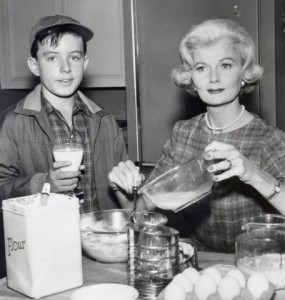In the West, pundits wring their hands over the unsavory fare that airs on TV nightly. Ordinary folks watch the three or four shows weekly that we can abide and we sigh about how much better Bonanza and the Beav were. But in China, the government goes further – forcefully moving to curb programs about dating, talent contests, marital problems and reality shows.
Such programming, the State Administration of Radio, Film and Television said, is “overly entertaining and of low taste,” China Daily reported this week. So, each of China’s 34 satellite channels are being limited to two such shows per week. State-approved news programs will largely take their place.
I, for one, applaud this move. There’s no doubt that the morals of young Chinese are being compromised by such products as “If You Are The One,” a dating show where girls wear, migosh, short skirts. In the wake of such broadcasts, girls now are wearing such skirts on the streets! Then there’s the corrosive effect of “Super Girl,” a knockoff of American Idol that fosters the myth that ordinary folks have talent. Let’s stop feeding such fantasies. Thank goodness that the show, which drew 400 million viewers even as officials branded it “vulgar,” “manipulative” and “poison for our youth,” was cancelled last month.
As China Daily described them, many such programs are “simple reproductions of popular ones.” Miming popular shows? Horrors! That kind of thing may suit the U.S., but not China. Further, according to the paper, “some tried to attract audiences through low-taste contents such as gossip and exposure of privacy.” Leave that sort of thing to Entertainment Tonight, I say. Sagely, the state’s TV watchdog agency observed that such things are a waste of resources and “also bad for improving the quality of TV programs.”
“Too many entertainment programs, broadcast during prime hours, will hold TV channels back from exercising their full duties. The media is not only to entertain people but also to inform and educate them, the [SARFT agency] statement said,” China Daily added, all under the headline “Entertainment cutback for better quality.”
It’s about time somebody made that case. China needs more broadcasts about the annual rice harvest. Give viewers more about heroic workers marching off daily to produce iPads and iPhones. Tell them more about the 50-year-old project to divert water from the south to the north. Run more documentaries about Japanese aggression 75 years ago.Even better, take a page from CCTV 24, the English-language channel of the state broadcasting service. Air more talking heads, commercials for distant provinces and fashion, fashion and more fashion, along with occasional bits about Occupy Wall Street, riots in Greece and shooting in Libya. That’s the kind of thing the public needs.
And, while we’re at it, something should be done about those pesky Western journalists. For one thing, they irresponsibly linked the prudent changes ordered for TV to an alleged crackdown on social media, especially a couple Twitter-like services used by more than 200 million Chinese each. Ignoring the reality that highbrow culture and correct opinions are what the Chinese need now, The New York Times reported critically about right-thinking calls for swift censorship.
The Irish Times was even worse. It quoted bloggers – bloggers! – saying most inharmonious things. “This is not a restriction on entertainment, it’s a new cultural revolution,” carped blogger Susaikeniao. Another, clearly in need of re-education, wrote, “How can a government say it represents you if it wants to control how many times a day you watch entertainment on TV?” And Susaikeniao added that “instability” could follow “because people focus on current affairs by watching CCTV, they … follow its way of thinking and are controlled on its tracks.”
Western journalists insensibly connected the moves to upgrade entertainment and quash rumor-mongering to alleged nervousness about Arab Spring Twittering and disclosures about “official malfeasance.” The New York Times cited blog posts, with photos, of a Yunnan Province city official’s sex orgy. I bet that the guy had been watching too many episodes of “If You Are The One.”I’m reminded of the days when Ed Sullivan chastely refused to show Elvis Presley’s gyrating hips, when married couples slept in separate beds on TV-sitcoms and when actors had to keep one foot on the floor in bedroom scenes. If only we had such rules again in the West. No doubt, there would be less teen pregnancy, fewer divorces and more church-going. Perhaps even a balanced budget and less unemployment. Oh, and longer skirts, too.



